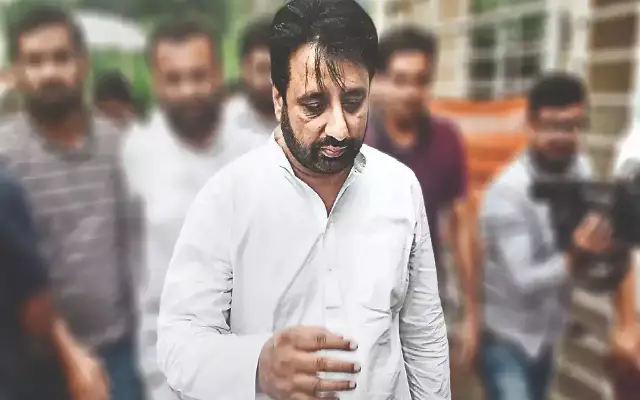A young man from a remote village in the eastern Indian state of Jharkhand was accused of sexually assaulting a married woman. To punish him, the village leader reportedly ordered the rape of his 14-year-old sister. The husband of the woman who was allegedly assaulted was told to carry out the rape.

As the woman’s husband dragged the girl to a nearby forest, the villagers just stared; this is not an incident that took place an era ago but something that happened in the month of June 2014.
This is the punishment for rape in the large part of India – which is rural and is dominated by unelected village leaders and council members. Nonetheless the elected members as well do no good to the women in the society in such villages.
On May 28, when two sisters in UP were raped and hanged from a tree, prominent leader Mulayam Singh Yadav, who is also the former chief minister of the state said, “Boys will be boys, they make mistakes.”
The use of rape as a punishment has a long history in India, right from the warfare and military occupation times but the punishment for rape is still a prolonging issue.
Last year in April, President Pranab Mukherjee, accorded his assent to the Criminal Law (Amendment) Bill-2013 also known as the Anti-rape Bill. According to the Bill, life term or even death sentence for rape convicts will be given besides stringent punishment for offences like acid attacks, stalking and voyeurism.
The law was basically an act following the nationwide outrage after the “Nirbhaya rape” at New Delhi. Courts changed the rape laws to allow for capital punishment in cases that cause death or leave the victim in a vegetative state. Repeat offenders can face death sentences.

It also states that offender can be sentenced to rigorous imprisonment for a term which shall not be less than 20 years, but which may extend to life, meaning imprisonment for the remainder of the convict’s natural life and with a fine.But, is that enough? The larger part that is ignored even today is the issue of gender equality. An “eye-for-an-eye” punishment or the leniency in the society with regards to the safety for women has been constant.
Even after the stringent law is imposed the application is sluggish. The courts and the legislature have to make many changes if the laws of rape are to be any deterrence. The sentence of punishment normally ranges from one to ten years, as the law is been twisted and turned.
On an average most convicts get away with three to four years of rigorous imprisonment with a very small fine; and in some cases, where the accused is resourceful or influential- may even expiate by paying huge amounts of money and get exculpated.

The courts have to comprehend the fact that these conscienceless criminals- who sometimes even beat and torture their victims- who even include small children, are not going to be deterred or ennoble by such a small time of imprisonment. Therefore, in the best interest of justice and the society, these criminals should be sentenced to life imprisonment.
Today the law made for the welfare of the rape victims amends various sections of the Indian Penal Code, the Code of Criminal Procedure, the Indian Evidence Act and the Protection of Children from Sexual Offences Act.However, in rural India the patriarchal views on gender still hold sway and sexual assault is an unofficially accepted form of punishment.
Another disturbing fact is that sexual violence against women and “revenge rape” is deeply entrenched in rural villages. But history and tradition make the law hard to enforce.
India’s legal system nonetheless only makes it very hard for women to secure convictions. When a woman is raped, the judicial will make sure she is raped once again in the form of trial ordeals.
The questions that the judicial put-forth are how did you get yourself raped? Why were you wearing those clothes? Why were you alone with that boy? Was it consensual and you are trying to cover it up? Good girls don’t get raped? Good girls are in their rooms? Good girls cover up their bodies? Good girls save themselves for their husbands and guard their purity for god?
The blame, the shame, the guilt that the society puts up on the woman for a crime that she has not even committed is ruthless.

Despite the challenges, India has made some progress. Various women’s rights movements and protests in the past three decades have started to create a shift in the thinking on rape. However we cannot say that the crime has decreased by any extent, but it’s reported today more than reported earlier.
The crimes are drawing attention to a glaring and fundamental problem across the country that threatens women’s safety. It is a willingness to talk about rape cases not as isolated incidents but as part of a larger problem for patriarchal societies around the world.
As said by Justice Saghir Ahmad, “Unfortunately a woman in our country belongs to a class or group of society who are in an disadvantaged position on account of several social barriers and impediments and have therefore, been victims of tyranny at the hands of men with whom they, unfortunately, under the Constitution enjoy equal status.”


















